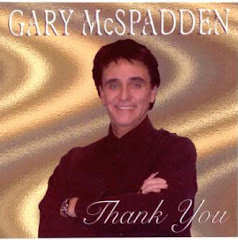From The Creative Pen, comes a strong primer on the targeting of your reader base and ways to creatively reach them. The book is definitely not my cup of tea but the concept is true, For This Book.
Every book has a defined market, whether you market to that audience, or not.
Take this advice as another opportunity to mine someone’s experience for what it brings to your cause and apply it in that vein.
Fantastic Book Marketing: A Great Example
This is a great example of fantastic book marketing! “Wired for War” by P.W. Singer is not my type of book and I haven’t read it myself, but my husband saw a review, visited the website and bought it immediately. I was curious to see how he made a decision so quickly to buy a book. You may not agree with the subject of this book, but it is a case of perfectly directed marketing.
Here are some lessons we can all learn from this book:
• Identify and know your target market. If you get 100 men in a room, how many of them are interested in talking about war machines and robots? Probably quite a few! This book has a target audience of techy men only. No one else would even be interested, but that group are totally into this subject. The first chapter is entitled “Why a book on robots and war?” and the first line “Because robots are frakin’ cool”. That says it all! If you have a book that a market will definitely buy, you just need to tell them you are there (and that is marketing!)
• Get reviews online where your target market are hanging out. Many authors aim to get reviews on book review websites and from literary critics in print media. If you have a non-fiction book, you are better off aiming for websites where your target market are. Most readers don’t actually hang out on book review sites, and particularly not techy men. Singer got reviews on Gizmodo.com, SlashDot (news for nerds) and Robotics.com as well as The Financial Times, traditional media and The New Scientist.
• Become a multimedia presence. Singer has videos of himself as well as print and internet reviews. You may not make it onto TED or The Daily Show, but you can make a video and put it on YouTube and embed it on your website. You can record some audio, get some blog posts online and be multimedia in no time! Meet people where they are, and people find books through all different media.
• Establish an excellent, but basic, website for free or cheap. I don’t know the details of who built Singer’s website, but it is built on Joomla, which is free software and easy to customise. I use Wordpress, but Joomla is definitely recommended for people who want an easy to set up and maintain website. This is a basic website, but very effective and to the point.
• Make it easy to buy your book. There is a link to Buy the book on every page of the site.
• Engage your readers. I had to sit through a number of the videos of “cool war robots” such was the enthusiasm this website aroused in my husband. It also has interesting polls, pictures, a discussion topic page and even a playlist of appropriate war-related tunes to listen to as you read.
• Be an expert. This is specifically for non-fiction authors, but Singer is obviously a master in his field. His bio demonstrates how much of an expert he is in this area and he has 2 previous books behind him. He is also passionate about this topic, and the book is also packed with references and technical knowledge. The book is excellent quality (if you like those kind of books!) so it is not a triumph of marketing over content, but more a case of a great book being extremely well marketed.
This book is published by Penguin, and Singer has a professional publicist behind him, but there are many authors who don’t achieve such a pervasive online presence. Other published and self-published authors can certainly learn a lot from this example.
Overcome Your Challenges
1 day ago








No comments:
Post a Comment